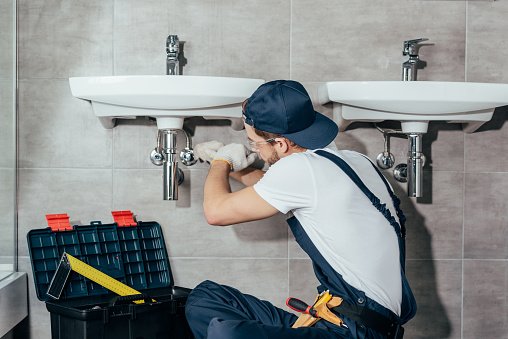Proper maintenance of your plumbing and drainage systems is crucial to ensuring your home runs smoothly. From preventing costly repairs to maintaining a healthy living environment, here are some essential tips to keep your plumbing and drainage in top shape.
Understanding Plumbing and Drainage Systems
Plumbing and drainage systems are vital components of any home, responsible for supplying clean water and removing waste efficiently. Properly functioning plumbing ensures water flows smoothly from faucets, showers, and toilets, while drainage systems prevent backups and flooding by carrying wastewater away. Whether you’re dealing with a leaky faucet or a clogged drain, understanding these systems’ basics can help you address issues promptly.
Tips for Preventing Plumbing Issues
- Regular Inspections: Schedule regular inspections by a professional plumber to detect potential issues early. They can identify leaks, corrosion, or other problems that could lead to larger issues down the road.
- Monitor Water Pressure: High water pressure can strain pipes and fixtures, leading to leaks or bursts. Use a pressure gauge to ensure your home’s water pressure stays within recommended limits.
- Proper Use of Drains: Avoid pouring grease, coffee grounds, or other debris down drains, as they can cause blockages. Drain guards are used to catch hair and small objects in bathroom drains.
- Maintain Water Softeners: If you live in an area with hard water, consider installing or maintaining a water softener. Hard water can lead to mineral buildup in pipes, reducing their lifespan.
- Insulate Exposed Pipes: In colder climates, insulate exposed pipes to prevent freezing and potential bursting during winter months. This simple step can save you from costly repairs and water damage.
Tips for Maintaining Drainage Systems
- Clear Debris Regularly: Keep gutters and downspouts clear of leaves and debris to prevent water backups and potential roof damage. Consider installing gutter guards to reduce maintenance.
- Check Sump Pump Annually: If your home has a sump pump, test it annually to ensure it’s functioning correctly. A malfunctioning pump can lead to basement flooding during heavy rains.
- Inspect Outdoor Drains: Check outdoor drains, such as driveway or patio drains, for blockages caused by dirt, leaves, or other debris. Clear any obstructions to prevent standing water and potential damage.
- Address Landscaping Issues: Ensure that landscaping slopes away from your home’s foundation to prevent water from pooling near the structure. Poor drainage around the foundation can lead to basement leaks and structural issues.
- Use Drain Cleaners Wisely: Avoid using harsh chemical drain cleaners regularly, as they can damage pipes and harm the environment. Opt for enzymatic cleaners or a mixture of baking soda and vinegar for minor clogs.
Conclusion
By following these tips for maintaining your plumbing and drainage systems, you can prevent costly repairs and ensure the longevity of your home’s essential systems. Remember, proactive maintenance and addressing issues promptly are key to keeping your plumbing and drainage running smoothly. Invest in professional inspections and prioritize regular upkeep to enjoy a stress-free living environment.
Maintaining plumbing and drainage systems doesn’t have to be daunting. With these practical tips, you can protect your home from potential water damage and ensure a comfortable living space for years to come.
